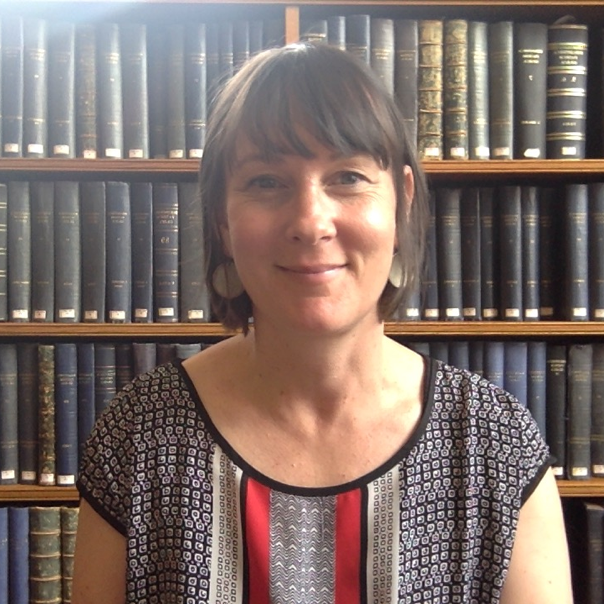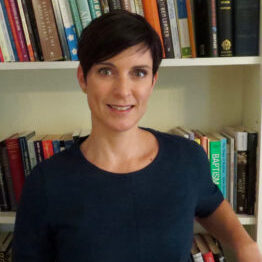Episode Transcript
[00:00:05] Speaker A: You're listening to by the well, a lectionary based podcast for preachers recorded on the land of the Wurundjeri people.
Hello, I'm Robyn Whittaker and this is the episode for Easter week 6.
And the readings for this week are Acts 16, 9, 15, John 5:1 9, or John 14, 23, 29, Psalm 67 and Revelation 21:10. And then picking up verse 22 through to chapter 22, verse 5.
Now that's a lot.
And we're not going to deal with the Acts 16 passage on Lydia here, but we will link in the show notes to some other resources, including the podcast I did with Sally Douglas last lectionary cycle where we do talk about that passage at some length.
Joining me today is Brendan Byrne, a Uniting Church minister and has been on this podcast before. So welcome back, Brendan.
[00:01:07] Speaker B: Thank you for having me back.
[00:01:08] Speaker A: For people who don't know you, just tell us a little about where you preach and what your ministry context is.
[00:01:15] Speaker B: Well, I have the very great privilege of dividing my time between being part of the ministry team at Wesley Lonsdale Street.
So you'll find me there on Sundays, either in the morning or in the evening. And during the week part of the chaplaincy team at the University of Melbourne.
[00:01:39] Speaker A: Wonderful. So based here and a colleague of mine and minister of mine.
So we're going to start with John, chapter five.
We pick this up. As far as I can tell, this does not occur very often in the lectionary, this text. This might be the only time I, I couldn't find it. Yeah. So it is worth thinking about preaching on. It's an unusual little story for reasons we will get into.
But we pick up John's Gospel where Jesus has performed a couple of in John's Gospel signs. He's, he's changed the water into wine at the wedding in Cana. He's also performed a healing miracle in Cana for the official son.
And now we're going to have a different kind of healing miracle.
But we start with the context of Jesus having gone up to Jerusalem. It's not the first time in John's gospel he goes to Jerusalem a lot. Unlike the Synoptic gospels where he only goes when he dies and he's gone there for a festival of the Jews.
And just John's gospel uses the Jews a lot. It sets up a rhetoric that we need to resist.
I think imitating this is a Jewish man going to a Jewish festival with all his friends.
So it's, it's portraying Jesus as a faithful Jew.
And that's where we get up to.
Brendan, what did you notice? What do we want to point out here? There's this pool. There's a lot of sick people.
There seems to have been some tradition that this is a healing pool.
But what do you. What. What do we notice about our main character, this man who's lying there for 38 years?
[00:03:20] Speaker B: Well, it's. You're right, it's one of those readings that we don't get to read often through the lectionary cycle. And it's a little bit unfortunate that that's the case because there's some interesting elements in this little passage.
And in fact, I think it carries echoes of the passage in Luke 17 where Jesus heals the 10 lepers and the healing act or event actually occurs as they're walking away, as Jesus tells them to go and show themselves to the priest so that they can be inspected and verified as healed and therefore admitted back into the community.
And the healing occurs as they're walking away.
And in this passage, too, we have this man who is unable to walk, who has been prostate for 30 something years.
[00:04:21] Speaker A: Yeah.
[00:04:22] Speaker B: And. And has been, presumably for most of that time, lying beside this pool, waiting for an opportunity to immerse himself in the pool so that he can hopefully be healed of his affliction.
And unfortunately for him, he has no one to help him into the pool.
But Jesus comes along and says, you know, one might think surprisingly and perhaps a little callously, would you like to walk?
[00:04:56] Speaker A: Yeah, no, I enjoy lying down here by the pool.
And probably in that social setting, I mean, if he's lying down by this pool, I mean, he's probably literally begging for his existence. I mean, this is a very bleak existence.
[00:05:10] Speaker B: I mean, this is the very definition of marginality.
[00:05:13] Speaker A: Yes.
[00:05:14] Speaker B: You know, and Jesus again, heals him without carrying him into the water.
[00:05:24] Speaker A: Yeah. Or even touching him.
[00:05:27] Speaker B: Or even touching him.
[00:05:28] Speaker A: Yep.
[00:05:30] Speaker B: And it's interesting, and I say that there's an echo here in my mind to Luke 17, because in both instances, Jesus circumvents the prescribed ritual or process for healing.
Inspection by a priest or immersion in the pool just enacts healing. And what I think that we're being told in these acts of circumvention is that the inspection by the priest that enables admission back into the community and the act of immersion in waters, which resembles baptism, and the cleansing of sin associated with baptism illustrates how affliction is often colored with a moral character, that those who are unwell or have some form of unwellness are therefore deemed in some way to be morally suspicious.
[00:06:35] Speaker A: Yes.
[00:06:35] Speaker B: Or, you know, morally marginal or contaminative.
[00:06:40] Speaker A: Yes.
[00:06:40] Speaker B: And need to be excluded and sidelined until and unless they fulfill the processes that we prescribe our culture or society prescribes for their healing and their readmission.
And Jesus is saying in both situations, by circumventing that process, he's saying, no, that doesn't apply.
The, the fact of unwellness requires our response in compassion, not our judgment about their moral worth.
[00:07:13] Speaker A: Yeah. Or musings about why they might be in the state they're in or any of those other. And of course, we have other stories too, where Jesus is very clear. Someone's affliction is not because of their sin or their parents sin. Exactly. Yeah, yeah. I mean, the other striking thing here is, I mean, this man, I mean, there's. There's so many striking things. But know, it's interesting. Does Jesus target him? Because he's almost the worst case. I mean, 38 years is a very long time in the ancient world when people didn't actually live that long.
You know, so there's deep compassion for props, perhaps the most marginal person, even at this place of, of illness.
But this man doesn't perform any of the things we might hope to see in terms of declarations of faith, requests for mercy. I mean, Jesus goes to him, initiates the action.
And I read one commentator that said this is one of the most least grateful recipients of. You know, he just then goes. He walks away.
[00:08:17] Speaker B: That's right. And. And again, that's where that echo with the Luke reading is because you have the 10 lepers who are healed and only one of them comes back to say thank you.
[00:08:26] Speaker A: Exactly.
[00:08:27] Speaker B: So, so again, this is, this is about Jesus rejecting that idea of mutual obligation that those that we work for and. And serve are then obliged to somehow reciprocate.
[00:08:47] Speaker A: Yes, exactly.
[00:08:49] Speaker B: You know, because so often and, and I do it myself, you know, in, in ministry or other parts of life, one expresses the wish that other people would be more grateful.
[00:09:02] Speaker A: Yeah, yeah. Or we actually expected. Even if we don't articulate that, we. We do unconsciously expect a certain level of gratitude and thanks for our ministry and can be quite disappointed or even annoyed when we don't get it.
[00:09:15] Speaker B: Exactly.
[00:09:16] Speaker A: Yeah, yeah. If we take this beyond the individual, what are the kind of implications for us if we read as a community in terms of social justice? And, and what are the other layers you see here, Brendan?
[00:09:28] Speaker B: Well, it's interesting that this man has been here for so long and in response to Jesus question, well, would you like to walk again?
He actually talked about how every time he tries or attempts to immerse himself in the water and fulfill the obligations that are expected of him, those who have the means to get into the water, push him aside and get ahead.
[00:09:56] Speaker A: They go in first and he doesn't get a chance.
[00:09:58] Speaker B: Exactly.
So here is a exact illustration of the way in which in our own society, those who have access to the means for medical care, health insurance, etcetera, do so at the expense of those who don't.
And that ties back into what I said earlier about the moral characteristic that's attached to unwellness, because you then have what are often economic circumstances that prevent access to medical care, which are in turn characterised as moral failings on the part of that person.
So you're poor or economically marginal because you're lazy or shiftless or what. You know, to quote a former federal treasurer, you're a leaner, not a lifter, and therefore you deserve not to be able to access.
[00:10:55] Speaker A: Yeah.
[00:10:55] Speaker B: Premium health care.
[00:10:56] Speaker A: And we see that kind of rhetoric too, in the kind of American exceptionalism, this idea if you just work hard enough, you can, you know, lift yourself out of poverty and whatever situation you're in. And yet here we have a man who's a great example of some. Who he wants to be. Well, he's tried numerous times, countless times to get into this pool and the entire system around him has prevented him from being able to access the thing that might be of healing to him. So, yeah, perhaps priests, preachers might want to muse about what that looks like in your context. I know we have listeners from all around the world, but thinking beyond just the personal to the. The way our society is set up and what. What are the things that actually stop people accessing what they need for life?
[00:11:42] Speaker B: Exactly. And it illustrates the way that moral presumption reinforces social and economic privilege.
[00:11:49] Speaker A: Yeah.
Let's move on to John 14.
So here we are in John's farewell discourse, which is what scholars call these few chapters, where Jesus says a lot of words and sort of preparing his disciples for the fact he's going to leave them. And the lectionary picks it up in verse 23, where Jesus is talking about love, love and keeping his words and the Father's love and. And a theme we're going to see.
One of the things I notice here is a theme that we're going to see kind of almost writ large in the revelation passage, which is this idea of my father and I. So we God will come to them. So those who love God, God will come towards them. It's the movement of God towards the people and make their home with humans. So love here, I mean, we might muse about. I'm interested to hear what you think of love is. If we're going to talk about love, I think it's sometimes helpful to actually unpack what that might look like.
But the love, at least in part, you know, that Jesus is talking about here is that mutual obligation. But it's one, one that we have already experienced in God because of God's movement towards us, which he's then going to talk about the Spirit as being the first sort of fruits of that movement. But.
[00:13:18] Speaker B: Yeah.
[00:13:18] Speaker A: What do you want to say about this passage?
[00:13:20] Speaker B: Well, we've already talked about how John is very big on signs.
[00:13:25] Speaker A: Yes.
[00:13:25] Speaker B: And I think this short passage from that wider discourse is another passage about signs. And it's about how love is a sign of God's advent in the world or God's presence or God's movement toward the world.
Because where this passage starts is Jesus has already talked extensively about how he and the Father indwell in one another and how he is going to the Father and where they will dwell within one another.
And what this passage does then is inverts that by talking about how God will move toward the world in the person of the Spirit.
And so that those who love Jesus and obey Jesus commands will dwell with Jesus and Jesus will dwell with them and the Father in the person of the Spirit. Because the person of the Spirit will become God's active presence and movement within the world.
[00:14:28] Speaker A: Yeah.
[00:14:29] Speaker B: And, and so that then becomes the sign of God's love in the world, that those who dwell in God through the Spirit in and with the Spirit love one another as a sign of God's love and God's presence in the world.
[00:14:46] Speaker A: Yeah, I love that way of thinking about it. Love as a sign. And I mean, we know from ancient sources, you know, going back to the second century, that one of the things Christians were known for was their love.
[00:14:57] Speaker B: Yes.
[00:14:59] Speaker A: That they were seen to sort of. And a love that was witnessed by others because it transcended the kind of barriers and boundaries that were socially normative and included these acts of, you know, generosity and hospitality towards, you know, people who are different, the marginalized.
[00:15:18] Speaker B: Yes.
[00:15:19] Speaker A: All of that kind of stuff.
[00:15:21] Speaker B: And, and, and, and what, what the love that is being described here, the, the love that is the. Is signified by God's movement toward the world is not that partial partisan love of Family or tribe or culture or fellow religionists, etc.
You know, sorry, J.D. vance, but you know. Yes, there is no hierarchy of love.
[00:15:51] Speaker A: No, that's right.
[00:15:52] Speaker B: It is, it is in fact expressive of what I once saw on a sign that said solidarity is the political name for love.
And that is what is being talked about here. Solidarity with one another through indwelling.
[00:16:10] Speaker A: Yeah.
[00:16:10] Speaker B: With each other, with God.
[00:16:13] Speaker A: Yeah. And there have been other Christian leaders that are, you know, the famous saying around things like, you know, justice is what love looks like in action. Like love is an activity.
It's not a feeling, you know.
[00:16:24] Speaker B: Exactly.
[00:16:24] Speaker A: It's not about whether you like, like someone even. It is about an action of love towards.
[00:16:29] Speaker B: Exactly.
[00:16:30] Speaker A: And I wonder in this passage if love is linked with the peace, which is where our passage sort of ends. So you know, Jesus, he talks about the promise of the Spirit, so we don't do this alone.
So that again, that movement of God which begins with the movement, well, it began in the incarnation, but it, you know, it is then embodied in the Holy Spirit coming to us.
But verse 27, you know, Jesus talks about peace, I leave you. And we could even interpret that as I leave you peaceably or something.
It's almost the mode of which Jesus is leaving is with peace. And then the more active my peace I give you.
So there's a sense of being handed on the very posture of Jesus ministry, which is a peaceable ministry.
And Sally and I talked about this the other week, this idea that peace, you know, a lot like love can't, we can't work with very reductionist ideas of it. Peace is not just the absence of war. Peace in the biblical tradition is this sense of shalom. This, this whole well being that again, a bit like the previous reading, takes us to every aspect of who we are, you know, physical, economic, social.
[00:17:46] Speaker B: Yes.
[00:17:48] Speaker A: You know, so to, to be bearers of peace, again means somehow embodying that deep shalom and an attitude, a posture of peace. Even when we do meet conflict, because we will, we cannot remove conflict from the world.
[00:18:05] Speaker B: Yeah, absolutely. And, and this is about not the kind of absence or stillness that people mistakenly think peace is. This is about movement.
[00:18:16] Speaker A: Yes.
[00:18:16] Speaker B: Jesus moving away and then coming back. And, and, and therefore our movement, our peace being one of engagement with the world.
[00:18:29] Speaker A: Yeah, yeah.
[00:18:30] Speaker B: Not, not withdrawing into our own sort of comfortable isolation.
[00:18:34] Speaker A: If you were going to visualize this, this is not some Instagram post of an individual sitting on a mountaintop in a Zen like posture. This is peace with like.
[00:18:43] Speaker B: Yeah, exactly.
[00:18:44] Speaker A: It's not withdrawal, as tempting and attractive as that might be for those of us who are introverts.
Anything else to say on, on this before we move on?
[00:18:57] Speaker B: Look, I, I think that there is, is significance in the fact that this is a passage that often gets recited at funerals. My peace, I leave you. You know, I do not give as the world gives.
Therefore, do not be afraid.
And we can take comfort, we can take solace, we can draw strength and support from the movement of gods toward the world, even on those occasions when God feels absent.
[00:19:28] Speaker A: Yeah, that's right.
Okay, let's move on to Revelation.
If you'd like to know more about by the well or any of our Hosts, please visit bythewell.com au so Revelation 21 and the, you know, lectionary is broken up. It's really just left out a chunk that, you know, could be the more boring bit to read aloud in church about the width and the height and the measurements of this city.
But, but what we have here is a vision.
In fact, it's also left out verse nine, which introduces it, which is one of the angels comes to John now our prophetic seer figure, and says, come, I will show you the bride of the wife. The bride, the wife of the lamb.
So we're in big symbols and metaphors here. The Lamb is the dominant image or one of the dominant images for Jesus in this text.
And so this city, New Jerusalem, is depicted as a bride that comes down.
So again, the movement towards the, the bride that comes down out of heaven, we're told. So the movement of God now embodied as a city. And then the metaphor kind of collapses because then it's actually almost God bringing it. But anyway, it's like God's provided a bride for God's self. But, you know, whatever, take it all lightly.
And maybe that's why the lectionaries left that out.
But we have a vision here of this holy city. It moves towards earth and towards God's people. And in verse 11, the description of the city is very much actually like the description of God back in chapter four of Revelation. There's, there's jewels and radiance and light and precious stones.
This is a glittering, glorious kind of thing. But we will also discover it's not just a human made thing, this is also full of nature and other things.
Brendan, what, what, what strikes you in this reading? Are you a Revelation fan?
[00:21:41] Speaker B: Well, this is, this is your field of expertise, so I'm happy to follow your lead. But when I did read this passage, what I was struck by was the fact that in a text that is so often incorrectly characterized as a prediction of the future, instead of being an articulation of the faithfulness of God and the fullness that will arise from that, is the imagery harkens deep back into the sacred history of Israel.
[00:22:17] Speaker A: Yes.
[00:22:18] Speaker B: And the Hebrew Scriptures, you know, it begins with the seer being transported to the top of a mountain.
And time and again, in the Hebrew Scriptures, Scriptures, the tops of mountains are the thin place where the heavenly and the human realm meet.
[00:22:38] Speaker A: Yeah.
And. And, and I think it's also drawing on that Hebrew Bible tradition of Mount Zion. Yes, right. Being the place in Isaiah where all the nations will stream.
[00:22:51] Speaker B: Yes.
[00:22:51] Speaker A: And it's worth mentioning here, the psalm for today, Psalm 67, has similar imagery. This. This grand, inclusive vision of a place where all nations can live peaceably. So if you're preaching on revelation or John 14, it's worth bringing the psalm in because there's overlapping themes there.
[00:23:09] Speaker B: Yes.
[00:23:10] Speaker A: And in many ways, those Hebrew Bible texts that, you know, are anticipating what is sort of painted more fully here, or another way to put that is Revelation is drawing very heavily and consistently on the vision we have.
[00:23:25] Speaker B: Yes.
[00:23:26] Speaker A: Yeah.
[00:23:27] Speaker B: It is not a repudiation.
[00:23:29] Speaker A: No.
[00:23:30] Speaker B: Of the previous tradition. There is no act of supersession going on here. No, on the contrary, it is the fulfillment of that tradition, because more of the imagery in this passage draws on Ezekiel and Isaiah and Jeremiah.
[00:23:47] Speaker A: Yeah.
[00:23:48] Speaker B: That rich prophetic tradition about the bountiful fulfillment of God. Of God that will come to the people, that will move to the people.
[00:23:58] Speaker A: Yeah.
[00:23:59] Speaker B: And so the old world, the old Jerusalem, isn't swept away, it is brought into its fullness. It is brought into its completion, its abundance.
[00:24:09] Speaker A: Yes. Yeah. It's reshaped into what the vision of it would be. And we see that in all sorts of ways. So the verse is skipped. I mean, really, the description here is of a kind of royal city. And we know, like, if we look at ancient Persian cities, so the walls are important because walls provide safety.
Excuse me, the.
So the high walls we have, there's gates. But I mean, John is quite explicit here. I mean, the gates, we're told, have the names of the twelve tribes of Israel. So if you sort of play with that image, Israel is the gateway.
There would be no entering the city without the Israelite tradition and. And the tribes of Israel. So. And then the foundations, the apostles. So he's always bringing together those parts of the tradition to make the whole.
And it's really important to remember that later on we. We learn as we read into chapter 22, that the gates are always open.
[00:25:11] Speaker B: Yes.
[00:25:12] Speaker A: So, you know, again, a really powerful image that even though there are walls, there's security, there is a sense that those who are not in God's team are outside. The unclean are described as being outside, but the gates are open. The invitation is always there to come into the city.
And we find that the people in the city include everyone from kings and rulers to all the nations. So again, this very expansive vision, which again is not replacing a vision of Jerusalem as the city of the Jews. Jerusalem was always this place to which the nations would stream.
[00:25:52] Speaker B: Exactly.
And the task of the chosen people is not to be this select group of the elite, but to be the light that draws the nations of the world to God.
[00:26:04] Speaker A: Yeah.
[00:26:05] Speaker B: But even where this passage references or talked about nothing unclean coming into the city, I think the, the vision, the image of abundance, of fullness that is present in this reading invites us to perhaps reflect that. What that means is not that there'll be those privileged few inside the walls and the condemned outside, but that God's grace is so abundant and so all encompassing that all will be made clean, all will be made fulfilled, all will be made complete and brought within the gates of God's kingdom.
[00:26:48] Speaker A: Yeah. And one of the, the clues, I think I, I agree entirely, is we have this, the tree of life. So we have a river of life and a tree of life. So we've got these Eden like images that, that are here at the end. So this is now a kind of a garden city.
And so again, nature is not removed, but nature and urban life and people live in harmony.
But this tree of life, we're told it has 12 kinds of fruit. So there's twelves everywhere, fruit for each month. And the leaves of the tree are for the healing of the nations, which has always struck me as a lovely image for the ongoing work of healing and peacemaking, that even at the end, where God is present and living with God's people, it's not like instant transformation of all our differences and conflicts go away, but there's ongoing healing. This is a kind of active thing.
[00:27:41] Speaker B: Yes.
[00:27:43] Speaker A: And it goes to what you're saying about the fact that these gates are open and there's always the chance to come in and eat the fruit for the healing kind of.
[00:27:50] Speaker B: Exactly. And, and I think that image of the leaves being for the healing also is a nice little reminder of the power of indigenous knowledge about healing plants and, and, and the, the ecology that provides healing.
[00:28:09] Speaker A: Yeah.
[00:28:10] Speaker B: Around us and Because, I mean, we don't eat leaves or anything like that, but we can apply botanical substances in the process of healing, and a lot of that is contained within indigenous knowledge. So there's a nice little echo there, I think.
[00:28:27] Speaker A: Yeah, that's right. And even, you know, as. As. As we're learning here in Australia, as we learn more and more, you know, we can learn from Aboriginal people about what. What it means to live in harmony with nature and. Yeah. As opposed to dominate it. Yeah, it struck me. And, and I don't want to get too political here, but, you know, this image of Jerusalem, I'm conscious even using that language, is confronting with what's going on right now in the world.
And it is a reminder that the biblical vision of. Of Jerusalem as the holy city of God, of welcome and hospitality.
[00:29:03] Speaker B: Yes.
[00:29:03] Speaker A: And, you know, that is what the scripture talks about. And, and, you know, I think it's fairly obvious that is not what's being lived out right now.
[00:29:12] Speaker B: And, and if there is anything that is overthrown, it is those divisions of politics, of culture, of history, of religion, of society, etc. Etc.
And what becomes shared is our common humanity and God's movement toward, and love for that humanity.
[00:29:31] Speaker A: Yeah.
So it's a brilliant vision of the end. And while it might seem sort of out there and esoteric, I think it can reflect back to us something deep about the values of God that then, you know, the next question is, well, how do our Christian communities here, how do our, you know, human communities even begin to look something like this, knowing we. We will not attain it perfectly.
[00:29:56] Speaker B: Yes.
[00:29:56] Speaker A: But, you know, at least within the church, could we strive for something.
[00:30:00] Speaker B: Yes. And again, that. That goes back to that earlier John 14, reading that we don't have to bear the burden of being responsible for it, ultimately ourselves. That comes through the power of God's movement toward the world.
[00:30:15] Speaker A: Yep.
[00:30:16] Speaker B: You know, and that's where that hope is. That's where that peace comes from.
[00:30:21] Speaker A: Yeah. Well, Brendan Byrne, thank you so much for being with us on this episode today.
[00:30:25] Speaker B: Thanks for having me.
[00:30:29] Speaker A: By the well is brought to you by Pilgrim Theological College and the Uniting Church in Australia.
It's produced by Adrian Jackson. Thanks for listening.





